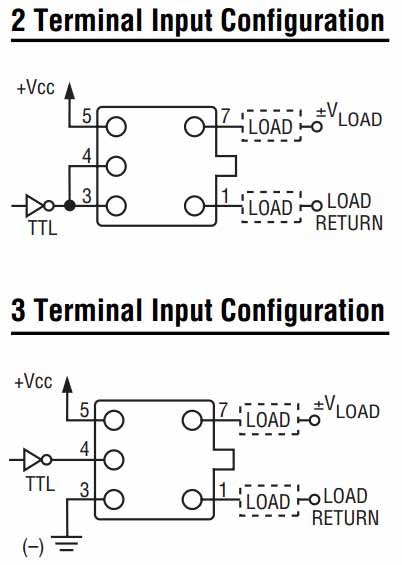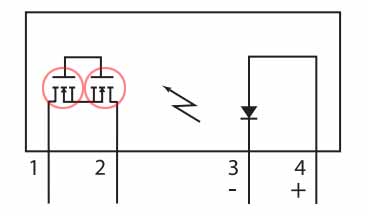The Solid State Relay linked in the question will not work for loads which could operate in either direction. For such purposes, search for SSRs specified for bidirectional DC or AC/DC loads (as distinct from just DC, AC or AC/Zero-crossing types).
While narrowing down to a specific such part will involve price, availability, voltage, package, size and perhaps other considerations, here are a few examples to illustrate that such relays do exist. Note how they are specified, to help extend the search for the ideal part:
- Tyco MS14 SSR Solid State Relay with Bi-Directional Output
- Notice that the Vload pin is indicated with a +/- in the diagrams:

- From the same family as the CPC1709 SSR in the question, IXYS CPC1909 would work, with the constraint that its maximum rated current is 6.5 Amperes, just at the limit for the application in question. Hence, it is inadvisable to use this part.
- Notice how the relay's switching portion is indicated in the diagram, with two FETs as opposed to the single FET in the CPC1709:

Unfortunately Digikey does not seem to carry any bidirectional load SSRs specified for greater than 6.5 Amperes, so the search needs to continue elsewhere.
Alternatively, consider limiting the current across each SSR to below the maximum load current rating of the part.


